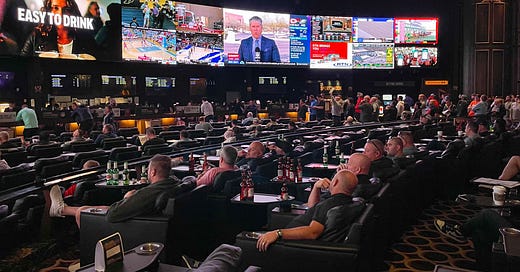‘Responsible Gambling’ Campaigns Always Fail. That’s the Point.
Sportsbooks and casinos have made betting more enticing than ever, showing why the industry shouldn’t be trusted to regulate itself.
In 2007, Terrance Watanabe went on one of the largest gambling binges in Las Vegas history. Unsurprisingly, the house ended up winning. In a year, the heir to a party-favor import business lost nearly $127 million.
Casinos loved Watanabe because he bet big, and badly…





What a great essay. Sincerely hope it prompts more debate about this problem and more intelligent policy approaches to deal with this industry and the addictions it is helping to generate.
The debate on government intervention in the U.S. gambling industry often revolves around the concept of liberty as non-interference, a core principle in American philosophy embraced by many libertarians. Advocates, including libertarian writers for outlets like The Wall Street Journal, argue that the government has no moral grounds to interfere in activities like gambling where individuals willingly participate. They emphasize personal autonomy, arguing that adults should be free to make their own choices about risk without government paternalism.
However, I contend that the societal costs of activities like gambling, notably addiction and financial devastation, strongly justify the need for regulatory measures. I challenge the notion that individual freedom can exist in a vacuum, detached from the broader community impacts and ethical considerations. This perspective underscores the critical need for a thoughtful balance between personal liberty and public welfare, ensuring that our freedoms do not come at an unacceptable cost to society.